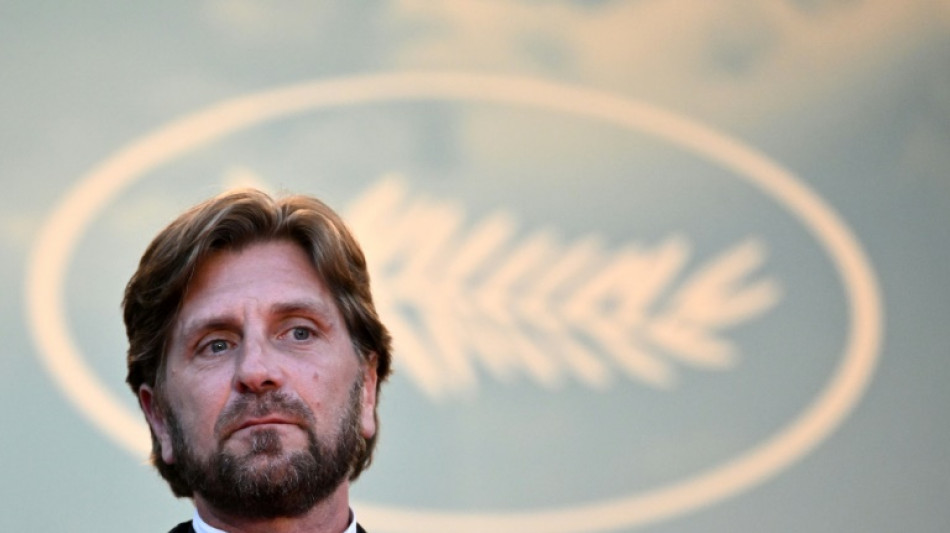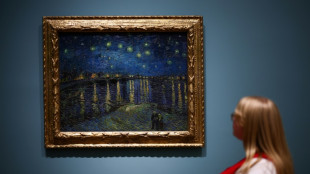

It's Marx vs Reagan as Swedish rollercoaster hits Cannes film fest
Swedish cult director Ruben Ostlund wowed the Cannes Film Festival with a rollercoaster movie about glamour, class, silly money and human nature on Saturday, involving the drunken delivery of quotes by Karl Marx and Ronald Reagan, and stomach-churning scenes of mass sea sickness.
Five years after winning the Palme d'Or top prize with "The Square", Ostlund is back with "Triangle of Sadness", a large-canvas movie initially about two models that quickly broadens out to include the super-rich and their eccentricities.
Events turn their world upside down, creating an unexpected reshuffle of power structures.
"I think human beings are very sensitive to hierarchies. Every day is about: what is my position in this hierarchy?" Ostlund told AFP in an interview.
At one level, the movie can be read as a critique of capitalism and its excesses, he said. In a key scene in the movie a luxury yacht's captain -- played by US star Woody Harrelson -- and a Russian billionaire, both drunk, trade quotes by philosopher Karl Marx and hardcore capitalist Ronald Reagan, the late US president. "Reagan was funnier," Ostlund concluded.
- 'Brought up by a communist' -
Ostlund, 48, said his Swedish upbringing during the Cold War years had been instrumental to his world view.
"I was brought up by a mother who still calls herself a communist," he said. "I grew up in the Cold War. There were two conflicting ideologies: Capitalism and communism.
"I thought a little bit that this was over. But it's almost like now, with Russia invading Ukraine, all of the sudden we're talking about east and west again."
While describing himself as a "socialist who believes in a strong state and a mixed economy", Ostlund said he never wanted to paint rich people as evil although "they should stop bullshitting and pay taxes".
"I didn't want to portray any of the rich people as mean. I wanted to understand their behaviour," the director said. But he added: "Capitalism is so good at exploiting all our needs and all our fears, where we live, our food, and makes money out of our creativity and everything we do."
English actor Harris Dickinson, who stars as male model Carl who forms a couple with influencer Yaya -- played by South African Charlbi Dean -- said Ostlund's movie was ultimately about what makes people tick.
"The film is provocative," said Dickinson. "It's an astute focus on our behaviour and our beliefs and our morality. It's all about human nature rather than politics."
Dean said human behaviour, like that seen in some of the film's scenes, is often dictated by circumstances and not pre-conceived ideas.
"We often tell ourselves 'I would never do that'. But if you're in a similar situation, wouldn't you behave in the same way?", she asked.
- 'Little bit of a dilemma' -
Despite their jetsetting lifestyle and perfect looks, both characters are plagued by insecurities. Carl gets jealous easily, and Yaya thinks she may have to become "somebody's trophy wife" once her modelling days are over.
"In the industry you have a short career," said Dean who herself is both an actress and a model.
"It starts very young, but by the time you're 22, it starts to decline, unless you're lucky. So as a model you often wonder what's next," she said.
Ostlund said he delights in the awkwardness of Swedish social norms which inspired many of his movie scenes.
"In Sweden, we're ashamed in social situations," Ostlund said. "I love it when the expectation of how we should behave puts us in a little bit of a dilemma."
A restaurant scene in the movie leading to a big fight over who should pay the bill was inspired by Ostlund's own, similar, experience with his future wife at a restaurant in Cannes. "And I'm married to her now."
Among the 21 films vying for the coveted Palme are two other Scandinavian entries: "Boy from Heaven", by Sweden's Tarik Saleh and Danish-Iranian Ali Abbasi's "Holy Spider".
Both Abbasi's and Saleh's films draw heavily on their immigrant backgrounds.
Abbasi left Tehran for Sweden in 2002, while Saleh was born in Stockholm to a Swedish mother and Egyptian father.
The Palme d'Or will be awarded on May 28.
L.M.Domiano--LDdC



